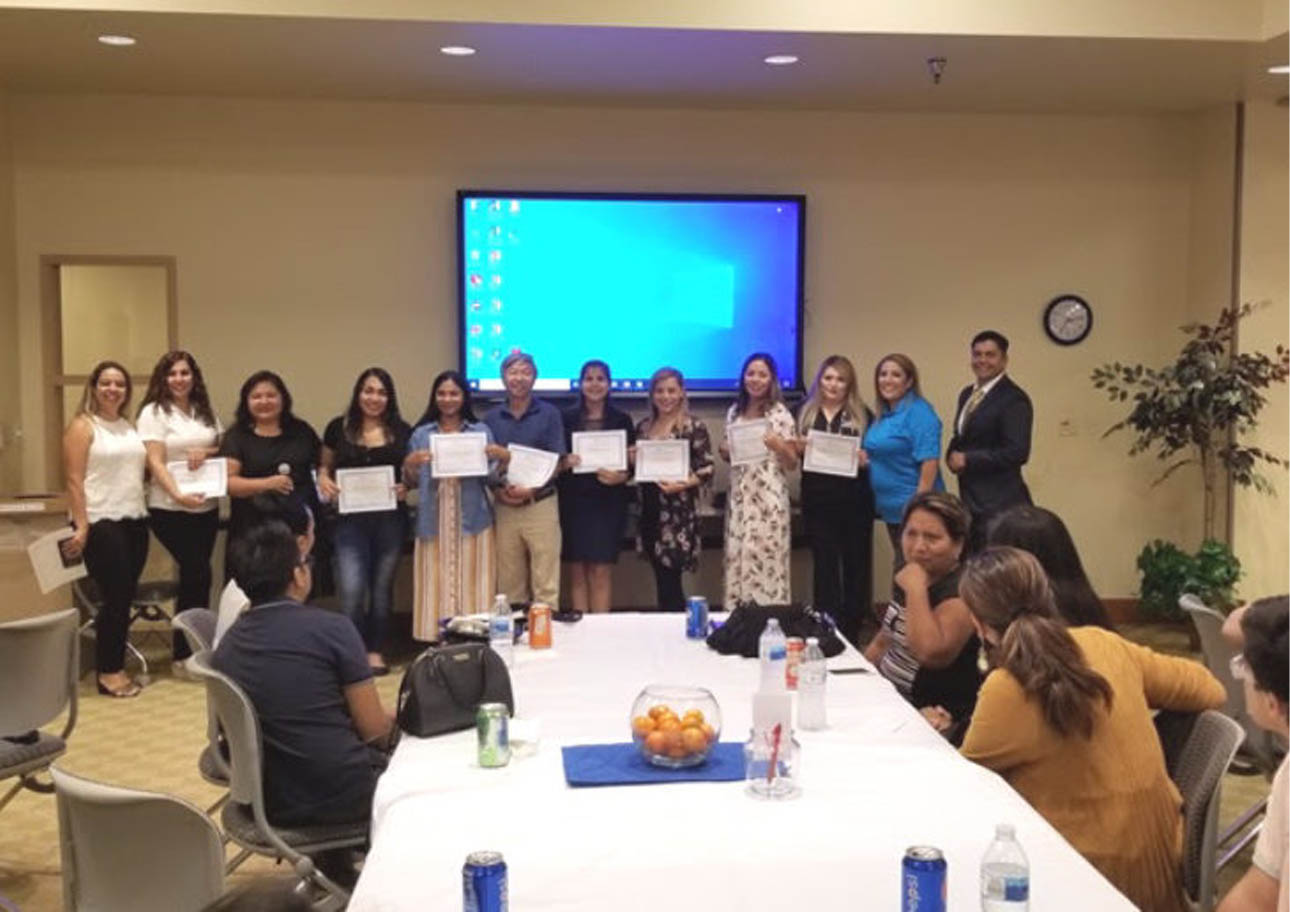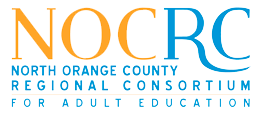
December 19, 2019.
When Elvia Rojas completed English as a Second Language (ESL) classes at North Orange Continuing Education (NOCE), the ESL Mentorship Program, supported by North Orange County Regional Consortium (NOCRC) for Adult Education, gave her the confidence and resources she needed to transition on to college.
“My mentor encouraged me to dream bigger,” said Rojas, who is now a student at Fullerton College. “I had thought my English was not good enough, and that college would be too hard and expensive. But I found this mentorship program, and I soon realized I can do this.”
The free ESL Mentorship Program isproving to be a gateway to new opportunities for adult students enrolled in NOCE’s ESL courses, and for students who serve as mentors.
The Mentorship Program was officially launched in 2017 with the hiring of on-site mentors. The main goal of the program is to direct ESL and Citizenship students to academic services that could help them reach their educational and career goals.
It also gives students the opportunity to receive one-on-one support from peer mentors who can guide them through the community college system. The mentors connect students to campus resources, help sharpen mentees’ study skills, and introduce them to the greater college community to ensure a deeper sense of belonging. Theultimate goal is to help students, like Rojas, make the dream of college success a reality.
“We help students explore pathways to educational possibilities and to stay on those paths,” said ESL Mentorship Special Projects Manager, Hilda Rivera. “These students are ready, but they just need guidance.”
That extra effort is already paying off. Thanks to the program, a Fullerton College student from Peru was recently invited to do an internship at the University of California, Berkeley. Another former NOCE ESL student, who is now studying at Fullerton College, has recently received a long overdue pay raise at work because they know he is on the track to graduating.
As for Rojas, a native from Mexico, he is pursuing a degree in Psychology at Fullerton College, and hopes to become a counselor to help victims of domestic abuse. She takes evening classes at the college and works for an inventory company during the day.
“At first, I had so many questions that I was embarrassed to ask,” Rojas recalled. “I didn’t know who could help me with my education. I didn’t even know where to begin with trying to continue my education, but my mentor helped me with the process from A to Z.”
The idea for the mentorship program came from faculty at Fullerton College realizing that many adult English learners have a difficult time transitioning to college. While some students have attended college in other countries, most who have moved to the U.S. are not familiar with the academic system. That can be daunting and inhibit some from moving forward academically.
For example, one incoming student was a teacher in her home country of Ecuador, but couldn’t find work as an educator in the U.S. Her mentor encouraged her to send her Ecuadorian degree to the state of California for review, and now she is on the path to becoming an educator in the States.
The mentoring process begins with a confidential intake meeting, where a lead mentor explores the student’s goals and academic history. Details discussed include whether a student has a high school diploma, foreign degree, their immigration status, and other basic information. The students are able to receive student services referrals pertaining to their own situation, including key matters like financial aid, tuition, and the California Dream Act application.
After intake, students are referred to an NOCE academic counselor who will help them create an education plan based on their needs and academic goals.
For many, education plans can make a big difference. Most students will follow it.
“Their choices become more intentional,” Rivera said. “They see a future with their education.”
Once ESL students enroll at Cypress College or Fullerton College, they are each assigned a mentor. For two semesters, the mentors take a hands-on approach to helping them successfully transition to college. They often show students their classrooms before the first day of classes, direct them to the bookstore, take them to the location where student identification photos are taken, and tour their college’s writing and tutoring centers and libraries.
“We actually physically take them to these locations, not just tell them about them,” emphasized Rivera. “We want to assist the student[s], because it’s not just academics that make people successful but all these services.”
Rojas said this proactive approach makes all the difference. “They showed me every single place I needed to know so I can be successful,” she said. “They were always contacting me to see how I was feeling. I feel blessed.”
Like many other former mentees, Rojas now works as a paid mentor in the program. “We have empathy for their struggles. I know how they feel, and I am there to encourage them to reach their goals.”
In the first semester the mentorship program was offered, nine students transitioned to college. In Fall 2019, 32 students were able to do so.
Some ESL students are hesitant to make a commitment to community college programs because they need to work and earn income to support their families. Many are unaware that they can actually prepare for their post-grad career paths along the way. Mentors can help them with the process of transitioning within NOCE Career Technical Education (CTE) programs or GED-HiSET prep courses.
After two semesters, the Mentorship Program culminates in a completion ceremony. Each student that has been part of the Mentorship Program is invited to the ceremony. The goal is to create a sense of community among NOCE alumni and to let new mentees know that they can rely on other NOCE members once they transition.
“We have the ceremonies as if to say, we want you to be academically self-sufficient,” said Rivera. “We want them to know they can be independent and encourage them onward.”
Rojas finds the entire mentoring process inspiring.
“Sometimes we don’t trust ourselves and we just need one person who believes in us,” she said. “I want to open my wings and fly. I want to encourage others to do the same.”
